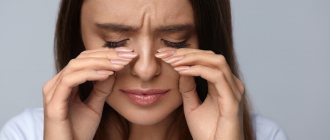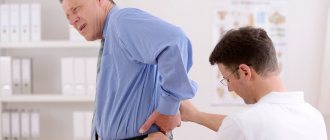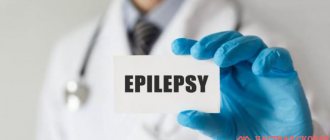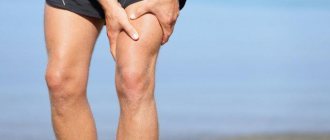Heart rhythm disturbances at night are associated with neurosis, disruption of the autonomic nervous system, apnea syndrome (breathing cessation), increased blood pressure, and diseases of the digestive system. Arrhythmia at night can be in the form of bradycardia, conduction block, extrasystole, paroxysmal tachycardia. Treatment requires searching for and correcting the underlying pathology and taking medications.
Why does heart palpitation occur?
The first reason is tachycardia, when pulsation is felt not only in the heart, but also in the neck, head and fingers and toes. In a state of tachycardia, the pulse is higher than 90 beats per minute. With normal functioning of the heart muscle, the heartbeat should not be felt.
The second reason for a rapid heartbeat is a condition caused by colds, elevated body temperature, and emotional overload. Such attacks, when the heart beats quickly, occur in healthy people and do not carry pathological changes in the cardiac organ.
Expert recommendations
The doctor will conduct diagnostics, tests, interview the patient and prescribe an individual treatment regimen. First aid and self-help methods will help relieve an attack, but after it you still need to be examined. If the cause is not a serious pathology, then the doctor will prescribe:
- regular physical activity;
- clean water consumption rate;
- reducing consumption of fatty, sweet, fried foods;
- taking multivitamins.
In rare cases, maintenance medications and dietary supplements are prescribed to normalize the heart rhythm. To stabilize the condition, increase the body's resistance and endurance, physiotherapeutic methods are prescribed from hydrotherapy and balneotherapy to magnetic therapy.
What is nocturnal tachycardia
Nocturnal tachycardia is an increase in heart rate of more than 90 beats per minute during sleep. If it occurs due to insomnia or excessive consumption of coffee in the evening, then it is a variant of the norm.
If tachycardia bothers you regularly without obvious provoking factors, then this may be a symptom of some pathological processes in the body.
Causes of tachycardia
During sleep, the entire body restores its functioning. He is in a relaxed state and gaining strength. Tachycardia at night is a dangerous syndrome in which the heart works at an increased rate with incomplete filling of the ventricles with blood. An attack of tachycardia at night can be either temporary or repeated at intervals. The reasons why your heart rate increases at night can be of different nature. Tachycardia is a symptom of the disease, not a deviation. Arises as a result:
- suffered severe stressful situations;
- problems with the heart and blood vessels;
- obesity;
- pathologies of the endocrine system;
- problems with the thyroid gland;
- gastrointestinal deviations;
- malfunction of the central nervous system;
- presence of asthma;
- rheumatism;
- hypoxia;
- pneumothorax;
- pulmonary obstruction;
- thyrotoxicosis;
- allergies.
Other causes of nighttime palpitations
Strong heart palpitations at night are caused by the following reasons:
- Organic myocardial lesions (cardiomyopathy), diseases of the endocrine system (thyrotoxicosis, diabetes mellitus). The patient is aware of the diseases, and treatment is aimed at combating the underlying pathology.
- Intoxication with alcohol, nicotine, acute infections, uncontrolled use of cardiac medications (self-medication).
- Anemia.
Sometimes the doctor cannot reliably determine the cause of nocturnal tachycardia. Such cases are considered idiopathic.
Symptoms
Since nocturnal attacks of tachycardia are accompanied by a panic attack, after sleep a person can explain them as disturbing dreams and not attach any significance.
This approach to assessing health status is justified only when attacks are isolated. If night palpitations constantly cause sleep disturbances, after waking up the rhythm does not normalize, shortness of breath appears, and subjectively tachycardia is felt as an attempt by the heart to jump out of the chest, then a trip to the doctor cannot be postponed.
Characteristic signs that tachycardia during sleep is serious and it is necessary to sound the alarm are pain and a feeling of tightness in the chest, dizziness, and fainting.
Attacks of palpitations
If a person experiences attacks of rapid and strong heartbeat, then he should fix his attention on the following manifestations of tachycardia:
- the frequency of occurrence of such a condition;
- duration of the attack;
- the cause of tachycardia (stress, food, physical activity, no apparent reason);
- typical time of onset of attacks (time of day);
- associated symptoms;
- pulse rate and rhythm;
blood pressure readings during an attack.
First aid for an attack
If tachycardia appears at night during sleep, you must:
- open the windows and provide fresh air;
- free yourself from restrictive clothes;
- wash your face with cold water;
- take an infusion of valerian or motherwort, Corvalol.
During an attack, people often feel panicked. Therefore, first of all, you should calm down and breathe correctly. If your heart rate is increased, you need to take a deep breath, hold your breath for 2-3 seconds and exhale slowly. To achieve relief, you should repeat the exercise for several minutes.
Diagnostics
The following methods are used in diagnosis:
- ECG. It may not be informative in case of paroxysmal arrhythmia, which bothers the patient only at night and not during the daytime.
- ECG Holter monitoring - electrodes are fixed to the human body and an ECG is recorded all day long, even during sleep. After recording, the data is output to a computer and decrypted by specialists.
- Transesophageal electrophysiological study. This is a study of the conduction system of the heart using electrodes that are inserted through the esophagus.
- EchoCG is a method that allows you to visualize the chambers of the heart, valves, great vessels, and the condition of the heart muscle.
Also, to find out the causes of tachycardia, the following are used: ultrasound of the thyroid gland, general, biochemical blood tests, MHO analysis, determination of blood glucose levels.
When should you see a doctor?
If self-help methods do not help, then this is a reason to consult a medical specialist. It is worth going to the doctor in cases where a rapid pulse is accompanied by:
- severe dryness in the mouth, sinuses;
- pain or tightness in the chest;
- headache, pressure in the eyes;
- severe loss of strength;
- uncontrollable panic;
- profuse sweating.
Advertising:
The cause may be a rapid pulse at night, when a person wakes up from rapid heartbeat and trembling. Doctors recommend paying attention to dangerous accompanying symptoms, such as heart pain, constant heart rhythm disturbances, darkening of the eyes, and shortness of breath.
Call an ambulance immediately if cold sweat appears against the background of an increased pulse, or pain appears in the chest or between the shoulder blades.
During night attacks, edema and cardiac asthma may develop when blood stagnates in the veins of the lungs. Then pink foam appears at the mouth, choking, shortness of breath, trembling and increased heart rate. During such an attack, the patient may lose consciousness.
Diagnostic methods
If the physiological phenomenon is not resolved by the recommendations, or does not go away when the regimen is normalized, then it is necessary to be examined by a specialist. Diagnosis using the following methods:
- ECG;
- heart rate monitoring;
- Ultrasound of the heart;
- echocardiography.
Daily Holter monitoring is considered one of the most reliable diagnostic methods. Records heart rate during physical activity, activity, sleep and wakefulness. Blood pressure must be measured; in rare cases, diagnostics are performed on a special exercise bike. You will need to donate blood for a biochemical analysis and check the determination of thyroid hormones.
A medical specialist conducts a survey and clarifies the details. He asks how often attacks occur and under what circumstances, at what time of day, how long they last, and what the patient uses for self-help. After diagnosis, a treatment regimen is individually selected, which includes drugs to quickly relieve symptoms.
Treatment methods
Advertising:
A specialist can prescribe not only medications, but also lifestyle changes. They recommend getting rid of bad habits, changing your diet, leading a healthy lifestyle, and introducing regular physical activity. The doctor may prescribe sedatives, antiarrhythmics, and multivitamins.
| Drug name | Active substance | Impact |
| Metoprolol | metoprolol | Intended for a long course of treatment, it has antianginal, antiarrhythmic and antihypertensive effects. |
| Verapamil | verapamil | Eliminates symptoms with individual dosage. Used in complex therapy. |
| Novocainamide | procainamide | Reduces myocardial excitability, normalizes the functioning of the cardiovascular system. |
| Amiodarone | amiodarone | Stabilizer. Facilitates the work of the heart, normalizes contractions, and reduces blood pressure. |
Sedatives are intended to normalize the condition of a patient with vegetative-vascular dystonia. Reduce the frequency of attacks, stabilize the nervous system. Antiarrhythmics are selected individually and help normalize heart rhythm. The doctor may also prescribe refractory period stabilizers, sodium and calcium channel blockers.
Diseases that cause palpitations and first aid
In addition to people suffering from hypertension and hypotension, heart rhythm problems can be detected in a person with normal blood pressure. What do such manifestations indicate? This may be due to diseases:
- pathological disturbances in the functioning of the heart;
- heart disease;
- myocardial dystrophy (heart damage);
- disruption of the endocrine system;
- arrhythmia (impaired heart contraction);
- anemia (iron deficiency);
- disorders of the nervous system;
- hypoxia.
Having discovered symptoms that a strong heartbeat has suddenly appeared, a number of measures should be taken to alleviate the condition.
- Provide fresh air access to the room.
- If there is a scarf or collar around your neck, remove it immediately.
- Wipe your face and neck with a cold wet towel.
- Sit on the bed in a lying position.
- If the symptom does not occur for the first time, it is permissible to take medications prescribed by a doctor.
Prevention measures
To avoid suffering from attacks of rapid heartbeat, you must follow these recommendations:
- Allow as little as possible excessive emotional and physical stress.
- Avoid drinking strong black tea and coffee, or at least limit their consumption. It is better to replace these drinks with green tea.
- Drink infusions of rosehip and hawthorn instead of tea. They normalize the heart rate. To prepare, mix the fruits of both plants in equal parts, pour boiling water and leave.
- If you have tachycardia due to hypertension, you can improve your health with the help of green oat juice. They drink it three times a day, 50 grams. Cornflower infusion also has a beneficial effect.
- If there is an increased tendency to develop tachycardia, then it is recommended to drink more green tea with mint and lemon balm.
Increased heart rate can occur at any age. To get rid of this unpleasant symptom, it is necessary to determine its cause and eliminate it. The best results can be achieved if a complex of therapeutic measures is used. In combination with medications prescribed by a doctor, it is necessary to normalize your lifestyle, eat right, use traditional medicine and undergo regular examinations.
Medicines
In many home medicine cabinets you can find drugs to reduce heart rate. They are available without a doctor's prescription and will help you quickly restore your performance. However, before taking them, it is important to find out the cause of this symptom, since different groups of drugs have different compositions and are indicated for tachycardia of different origins. So, the doctor may recommend the following medications:
- Valocordin, Corvalol - drugs based on phenobarbital and plant extracts, available in the form of drops that need to be diluted in water;
- valerian officinalis - comes in the form of drops and tablets, it helps well with tachycardia caused by nervous tension;
- rosehip or hawthorn fruits, motherwort root - raw materials for the preparation of soothing decoctions, useful for calming the heartbeat;
- if necessary, medications to replenish potassium or magnesium deficiency (Asparkam, Panangin).
There are contraindications, you need to consult a specialist!
Related posts:
- Left side hurts Pain is a complex process, the occurrence of which is not fully understood. She…
- Not enough oxygen - why and what can help Hypoxia (literal translation from Greek - “little oxygen”) is a condition...
- My head is spinning, how to deal with the problem of VSD When the world “floats”, it becomes uncomfortable and frightening: you have to not...
- Neuralgia: causes, symptoms Neuralgia is damage to the peripheral nerves, accompanied by intense pain in…
Treatment methods
Rapid night heartbeat is treated depending on the cause that provoked it. To rid a person of unpleasant symptoms, medications and folk remedies are used.
Tachycardia at night is eliminated:
- Sedatives. They practice the use of drugs based on medicinal plants in the form of infusions of motherwort and valerian, Novo-passit. They are produced in the form of drops, tablets, and infusions.
- Antiarrhythmic drugs. These tablets are designed to normalize the heartbeat. They have a number of contraindications, so the attending physician must select the medicine.
Tachycardia is also eliminated with cardiac glucosides, beta blockers, antioxidants, and sedatives.
- Carrying out an ECG for angina pectoris and interpreting the results
You should get rid of strong heartbeat at home with the help of mint, lemon balm, St. John's wort, chamomile, motherwort and others. An infusion is prepared from these plants. An effective remedy for tachycardia is a decoction of valerian root, yarrow and lemon balm.
Take a teaspoon of all components, add boiled water and simmer in a water bath for 40 minutes. Then cool, filter and drink.
If tachycardia bothers you at night, experts recommend adjusting your lifestyle. It is important to avoid stress and excessive loads. It is necessary to ensure that a sufficient amount of vitamins enters the body. Omega-3s are of great benefit to the body. These acids are found in fish.
In the evening before going to bed, you should not think about your problems. Since sometimes the heart rate increases under the influence of medications, it is necessary not to take them in the evening and report this adverse reaction to your doctor.







